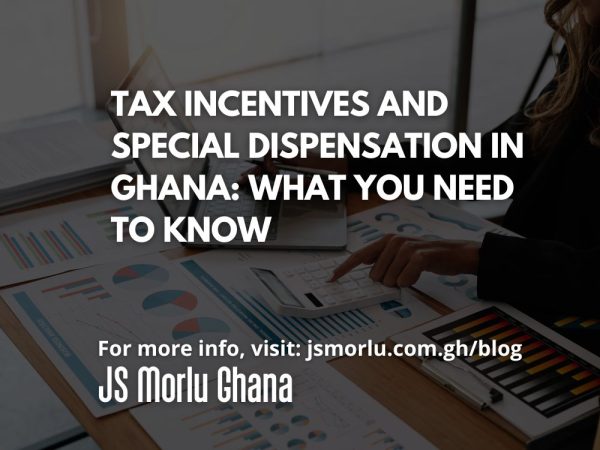Ghana’s tax system offers a range of tax incentives, exemptions, and special dispensations designed to reduce the financial burden on individuals and businesses while encouraging investment across specific sectors and locations. These measures are built into the tax law to support national development objectives by promoting entrepreneurship, rural investment, agro-processing, and exports, among others.
This article explores the key tax incentives and reliefs available in Ghana, focusing on industry-specific, location-specific, and product-specific benefits.
Personal Income Tax Reliefs and Exemptions
Before diving into corporate tax incentives, it’s worth noting that individuals in Ghana may also benefit from personal tax reliefs and income tax exemptions. These reliefs aim to ease the tax burden for qualified individuals, especially those with dependents, disabilities, or other qualifying conditions.
Overview of Corporate Tax Incentives in Ghana
Ghana’s tax law offers corporate tax incentives in several forms:
- Tax holidays
- Special tax rates
- Location-based reduced tax rates
- Export incentives
- Deductions for qualifying expenses
These incentives are targeted at specific industries, geographical areas, and products, and businesses must meet certain criteria to qualify.
1. Industry-Specific Tax Incentives
Some businesses operating in priority sectors are granted tax holidays during which they pay a highly reduced corporate income tax rate of 1%. After the holiday period, they revert to the standard rate.
| Sector / Business Type | Tax Holiday Duration | Tax Rate During Holiday (%) | Tax Rate After Holiday (%) |
|---|---|---|---|
| Agro-processing (wholly local) | 5 years | 1% | 25% |
| Cocoa by-products (wholly local) | 5 years | 1% | 25% |
| Tree crop farming | 10 years | 1% | 25% |
| Cash crops or livestock (excluding cattle) | 5 years | 1% | 25% |
| Cattle farming | 10 years | 1% | 25% |
| Waste processing | 7 years | 1% | 25% |
| Rural banks | 10 years | 1% | 8% |
| Certified low-cost housing (real estate) | 5 years | 1% | 25% |
2. Expense Deductions: What Is Allowed?
Businesses in Ghana are allowed to deduct expenses that are:
Wholly, exclusively, and necessarily incurred in generating income for the year.
However, capital expenses are not deductible. This includes any expense that provides a benefit lasting more than 12 months, such as the cost of acquiring machinery or buildings.
3. Location-Specific Tax Incentives
Ghana offers reduced tax rates to companies that establish operations in certain regions of the country, particularly outside the main commercial centers of Accra and Tema. This is aimed at promoting regional development and reducing urban-rural disparities.
Agro-Processing Businesses
After the 5-year tax holiday, agro-processing companies using local agricultural raw materials can benefit from reduced tax rates based on plant location:
| Location | Corporate Tax Rate (%) |
|---|---|
| Accra | 20% |
| Tema | 20% |
| Other regional capitals (excluding Northern, Upper East, Upper West) | 15% |
| Outside regional capitals | 10% |
| Northern, Upper East, Upper West (incl. capitals) | 5% |
Manufacturing Companies
For manufacturing firms, incentives apply based on the location of their plants:
| Location | Corporate Tax Rate (%) |
|---|---|
| Regional capitals (excluding Accra and Tema) | 18.75% |
| Outside regional capitals | 12.5% |
4. Product-Specific Tax Incentives
Ghana provides concessionary tax rates for exporters of certain agricultural and non-traditional products to promote international trade and value addition.
Exporters of Non-Traditional Products
Companies that export non-traditional Ghanaian products enjoy a special tax rate of 8%. Eligible products include:
- Horticultural products
- Raw and processed agricultural goods (excluding cocoa beans)
- Wood products (excluding logs and timber)
- Handicrafts
- Locally manufactured goods
Final Thoughts
Ghana’s tax incentive structure is designed to stimulate economic growth, regional development, and investment in key sectors. Whether you’re starting a business in agriculture, processing, manufacturing, or export, it’s crucial to understand the specific qualifications and benefits available to your industry or location.
For more guidance on applying for these tax incentives or understanding how they impact your business, consult the Ghana Revenue Authority (GRA) or a licensed tax consultant.
